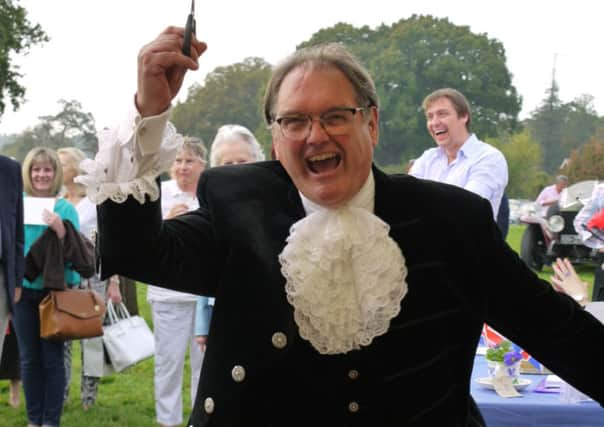Welcome to Parliament and its richstory of debauchery and treachery...


No aspect of British history has escaped being touched by Parliament. Yet the very story of Parliament and the characters that have transformed all our lives is rarely told, whilst today’s events are told in a hurry.
Now, for the first time, to mark this major anniversary, Horsham District Council’s Horsham Museum will be holding a major exhibition on Parliament and its local history, called ‘Order (dis)Order’. The District’s story goes back, not to the first calling, but to 1295 when three boroughs, Bramber, Steyning and Horsham were given the right to send two MPs each to Parliament. The number who could vote for these MPs was very small, 52 in Horsham’s case around 20 in Steyning and far less for Bramber.
Advertisement
Hide AdAdvertisement
Hide AdToday people clamour to be MPs, but in the past it was the last thing you would ask to be, so MPs would be parachuted in by the local Lord or powerful magnate at the request of the King. Horsham for example in the 18th century had Scottish people be its MPs. It had administrators working for the Tudor Kings and Queen stand as its MPs. Anyone but a local person.
‘Order (dis)Order’ takes its title from the Speaker’s well known phrase reflecting the cacophony of noise that can occur in the chamber. The chamber was built in 1834 after the old Parliament was burnt down. The very nature of the building leads to the type of parliament that we have with opposing sides. Yet the Commons had various homes including a Painted Chamber.
On display is a rare hand coloured copy of the paintings which were destroyed during a Regency period make-over. This is one of many illustrations, prints and drawings that help make the exhibition come alive, where political satire was harsh, cruel and vindictive – but such fun to see as a distant viewer.
One of the glories of Horsham Museum is the unique collection of election posters and documents that span nearly 200 years when Horsham gained the reputation of one of this country’s most corrupt towns. A town where this nation’s Solicitor General was found guilty of corruption, where a seat was sold for £4,000 and later £80,000 was spent in bribery.
Advertisement
Hide AdAdvertisement
Hide AdAmongst the treasure trove of documents are unique accounts of electioneering and an illegal memorandum setting out how to nobble the vote. While the posters on display show just how tame the modern variety are.
Yet the story doesn’t end there for recent research has shown Horsham’s connection with the British Union of Fascists and how its MP supported the charismatic leader, Sir Oswald Mosely whose father lived at nearby Thakeham.
The exhibition ‘Order (dis)Order’ is being supported by Toovey’s Auctioneers and Valuers, based at Washington. Over the years Toovey’s has sold, through its books, ephemera and art sales, items that reveal the rich history that this exhibition portrays. The exhibition is being opened by The High Sheriff of West Sussex, Jonathan Lucas, an office that was central to the medieval and later calling of Parliaments.
‘Order (dis)Order’ opens to the public on Saturday January 17 and runs to March 7.